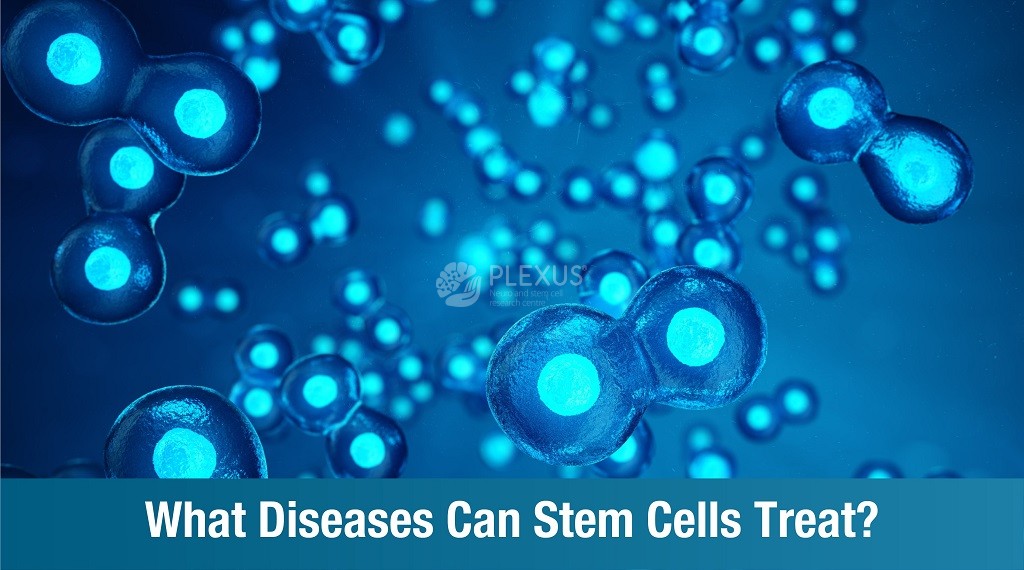
Coming to terms with a final medical diagnosis can be emotionally devastating. What happens next? This is a question that leaves us feeling scared, nervous, and even uncertain.
However, today we’d like for you to read this blog with just one thought – I can overcome this!
Staying positive and hopeful is a big part of stem cell rehabilitation at Plexus.
What are stem cells?
Stem cells are unspecialised cells of the human body. They have the ability to transform and/or multiply into specialized cells. They are procured from one part of the body and can become/grow into other kinds of cells. They work to repair the body by generating healthy cells that can replace the cells damaged by disease.
Based on their divisional capacity and ability to differentiate, stem cells are classified as:
- Totipotent
- Pluripotent
- Multipotent
- Oligopotent
- Unipotent
The four different types of stem cells include:
-
- Embryonic stem cells (ESCs)
- Adult stem cells (ASCs)
- Mesenchymal stem cells (MSCs)
- Induced pluripotent stem cells (ISCs)
Once the stem cells are identified and classified, their self-renewal and differentiation capacities may be determined. This will further ascertain the type of disease/disorder they may be used to treat.
What is stem cell therapy?
Stem cell therapy helps in repairing or restoring function of diseased, dysfunctional, and/or injured tissue by injecting stem cells (or their derivatives). It modulates the body’s immune system and helps in reducing inflammation. Neuroprotection is one of the primary objectives of regenerative treatments like stem cell therapy. Injected stem cells can secrete proteins and growth factors. Additionally, they produce supporting cells that can protect damaged motor neurons from more damage and/or degeneration.
How can stem cells help me?
Stem cells have three distinct characteristics that make them the perfect choice for regenerative medicine:
- They have the ability to self-renew and differentiate.
- They are unspecialised cells, which means they may not be able to perform certain specialised functions.
- They can differentiate into specialised cells, such as blood cells, brain cells, muscle cells, nerve cells.
Due to these factors, stem cells can be used to manage the symptoms, slow down the progression, and even reverse tissue generation depending on the type of disease you’re battling with. Remember, a difficult diagnosis is not the end of the road. The proof in the pudding lies in stem cells being used to manage the following:
-
- Inflammatory conditions
-
- Trauma-induced conditions
- Autoimmune diseases
- Neurological disorders
- Metabolic disorders
- Hematopoietic diseases
- Cardiovascular illnesses
- Gastrointestinal disorders
- Kidney disorders
- Lung disease
- Liver disorders
- Cancers
- Skin disorders
- Ocular disorders
As we grow older, our body’s ability to self-heal also ages and debilitates. This is why regeneration or repair of damaged tissue in the elderly is much slower. Very often this ability may be completely disrupted by neurodegenerative conditions like Parkinson’s or Multiple Sclerosis. In such cases, injected stem cells fortify the body’s self-healing powers, and help in the management of symptoms, and slowing the progression of the disease.
Furthermore, because of their ability to secrete growth factors, stem cells also display the potential to regenerate organs and expedite the recovery of patients suffering from organ failure (and not wait for a donor organ to be available).
Stem cell therapy has also shown promise when it comes to reversing ageing, and addressing infertility.
Stem cell rehabilitation at Plexus
At Plexus, we offer stem cell rehabilitation for neurological and neurodegenerative conditions, autoimmune diseases, orthopaedic conditions, and sports injuries.
We use autologous mesenchymal stem cells (procured from the patient’s body) and eliminate the risk of side effects and immune rejection.
Stem cell therapy at Plexus is a non-surgical procedure that has the following advantages:
- Assists in symptoms management
- Improves quality of life
- Betters everyday functionality
- Prevents/slows down further nerve damage and disease progression
- Lowers inflammation and reduces pain
- Improves immune function
- Enhances brain development
- Offers faster post-procedural recovery
If you wish to know more about our regenerative rehabilitation programmes or any of our other services, reach out to us today.
WhatsApp +91 89048 42087
Call +91 78159 64668 (Hyderabad) | +91 82299 99888 (Bangalore)
FAQs
What are the risks of stem cells?
The risks associated with stem cells are minor, not life-threatening, and invariably temporary. Typical risks include nausea, headaches, and fatigue.
Can stem cells cure kidney disease?
Stem cells can help manage the symptoms of kidney disease, and even slow down the rate of deterioration of the organ. At present, stem cells cannot be considered a complete cure for most diseases.
Which stem cell is most useful?
Mesenchymal stem cells are the most preferred choice in the rehabilitation of several conditions.
Is stem cell therapy available in India?
Yes, stem cell therapy is available in India for the management of blood disorders, neurological and orthopedic conditions.










